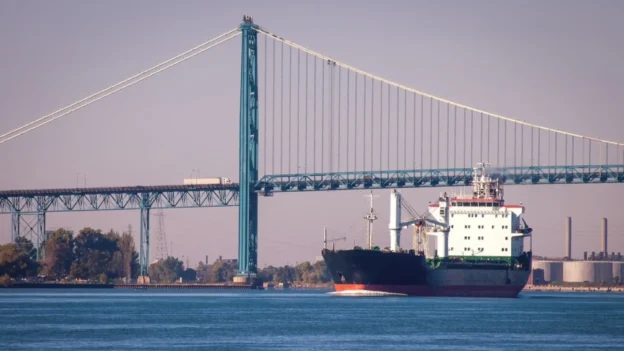The Detroit/Wayne County Port Authority has announced a plan to reduce carbon emissions by 2040. This initiative aims to significantly improve residents’ health and air quality.
Working with technical experts from Tunley Environmental in the United Kingdom and with funding from the state of Michigan, it was determined that operations in the port region were generating 27,869 metric tons of carbon dioxide equivalent, requiring urgent action.
The challenge of the maritime industry
The maritime industry, responsible for 3% of global emissions and growing, faces the challenge of switching from fossil fuels to zero-emission energy sources. “We must migrate to zero-emission energy sources in our ships, port equipment and trucks by 2040 to avoid the catastrophic effects of climate change. But we also focus on the immediate impact on air quality and improving the lives of residents in our community.said Mark Schrupp, executive director of the port authority.
On the other hand, Raquel Garcia, executive director of Southwest Detroit Environmental Vi Southwest Detroit Environmental Vi s ion , underscored the urgency of the plan. “Southwest Detroit and downstream communities have some of the highest asthma rates in the country. Immediate conversion to biodiesel fuel will improve the quality of the air we breathehe commented.
Collaboration key to carbon emissions reduction
Dr. Robert Moorcroft, project leader at Tunley Environmental, highlighted the essential collaboration with terminal operators who shared vital data on their operations. This cooperation enabled an accurate assessment of carbon emissions and the identification of strategies to reduce them. “We have been pleasantly surprised by the business community’s support for the plan, which convinces me that we will achieve our objectives.said Moorcroft.
Immediate measures include the introduction of biodiesel which reduces emissions by 74% compared to traditional diesel and is compatible with most current equipment. The plan also drives the transition to electric and hydrogen-powered port equipment and trucks, along with continued research into zero-emission fuels for cargo ships. fuels for cargo ships.
In this regard, Port Authority Chairman and Wayne County Commissioner Jonathan Kinloch emphasized, “This report is a start on the Port of Detroit’s path toward sustainability and reducing carbon emissions to net zero by 2040. We envision an economically and environmentally viable port, where good jobs, growing businesses and clean air thrive together..”
Economic impact and carbon emissions reduction
The Detroit/Wayne County Port Authority, a government agency that promotes the maritime and related industries of southeast Michigan, has worked for more than 45 years to build connections between the community, the maritime industry and the Great Lakes region, highlighting the importance of the Port of Detroit and its economic impact on Michigan.
With the largest inland port in Michigan, the Port of Detroit is located along the Detroit and Rouge Rivers in Wayne County and comprises multiple terminals for handling general, liquid, bulk, and passenger cargo.
Follow us on social networks and don’t miss any of our publications!
YouTube LinkedIn Facebook Instagram X
Source: marinelog
Photo: Shutterstock

